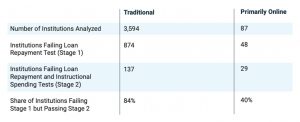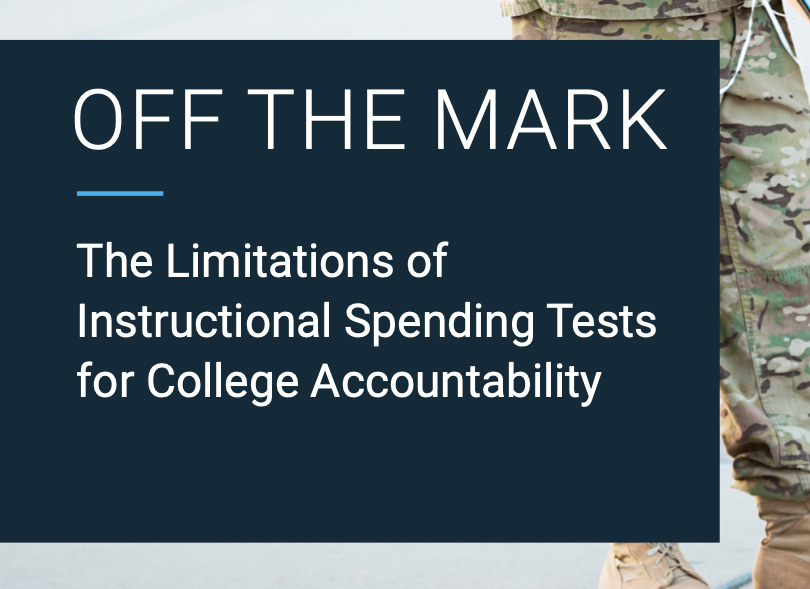The Federal Government is a key financier in our nation’s higher education through various grants and loans. Consequently, there is a great deal of concern regarding the potential for fraud and waste. Educational institutions must ensure a level of accountability if their students are to be able to access federal aid. The G.I. Bill and Tuition Assistance Program are not considered entitlements in the same manner as the Department of Education’s (DOE) grant and loan programs. Veterans have earned their funds as a result of their service and are treated in a different manner as a result. Nonetheless, similar problems apply to our men and women transitioning out of the military. We should be doing our utmost to guarantee that veterans are not defrauded by poorly-performing institutions. Politicians on both sides of the aisle are worried that present regulations are insufficient to address such concerns.
There is a new quality assurance proposal that is making the rounds. It seeks to set a minimum level of spending on instruction in order to render institutions eligible for federal funds, including veteran programs such as the G.I. Bill. The Veterans Education project has taken action to produce a study that looks into the potential outcomes of such a policy.
The study examines the relation between colleges’ student outcomes and proposed levels of instructional spending as a percent of tuition in order to see which institutions would be most affected and whether this would help or hurt the educational ambitions of veterans. Our analysis first screens for institutions at the bottom quartile of repayment rates. Then we place these institutions through a second screening that checks for inadequate instructional spending. Here are the results:

Our study finds that there is little correlation between an institution’s instructional spending and the educational outcomes for students. Furthermore, we that instructional spending tests to be arbitrary, significantly impacting online institutions in a manner that is not proportional to their student outcomes. This proposal would also heavily favor Public universities and colleges that will almost always (99%) pass the instructional spending benchmark, regardless of whether they pass the loan repayment screening. Only 60% of For-Profit institutions meet the instructional spending requirement despite loan repayment rates that are comparable to Public and Non-Profit institutions.

Online educational platforms would be hardest hit by this new proposal. The spending of non-traditional educational institutions spending will not be accounted for adequately via IPEDS, as it is with traditional institutions, since many expenses for online-delivery do not fall under IPEDS’ definition of “instruction,” while nonetheless remaining essential and necessary expenditures for the sake of their students’ education. We highlight the outcomes for online and For-Profit institutions due to how these proposed policies would affect veterans pursuing higher education. Nearly 20% of military and veteran students attend For-Profit institutions and over half rely on some form of online classes. In fact, they are twice as likely to depend on fully-online educational programs as compared to the rest of the population since it offers the flexibility they need to balance their many responsibilities.
To conclude: our study finds that there is little evidence to show that instructional spending benchmarks will have any significant effect upon student outcomes. Not only would such a policy fail to achieve its stated goal, but it would harm the ability of veterans to pursue the higher education by arbitrarily targeting the kinds of educational institutions that best suit them.
Tomorrow September 1st, we will be hosting a Digital Roundtable to further discuss these findings. If you wish to join, please register here.




